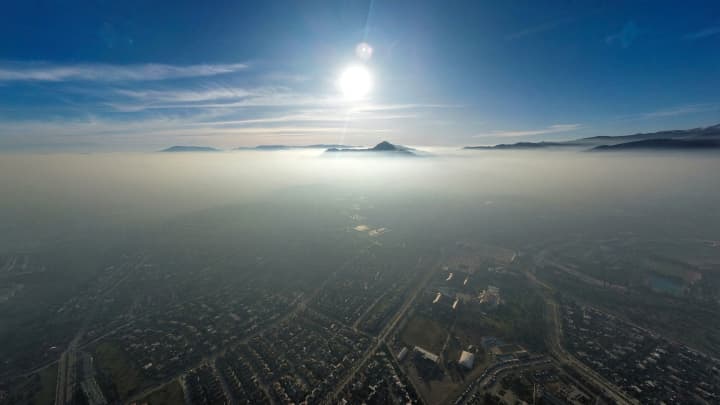
An unprecedented winter heatwave is sweeping across a large chunk of South America, with temperatures forecast to exceed 40 degrees Celsius (104 Fahrenheit) in southwestern Brazil in the coming days.
It comes as part of a recent trend of stretching across the globe, with the month of July poised to be recognized as the .
Unlike the extraordinary temperatures recently recorded during the northern hemisphere's summer season, however, countries including Argentina, Chile, Paraguay and Brazil are supposed to be experiencing temperatures associated with the middle of winter.
Scientists say the winter heat is being fueled by the climate emergency and the phenomenon. El Niño is a naturally occuring climate pattern that contributes to higher temperatures across the globe.
Argentina's capital city of Buenos Aires on Tuesday registered temperatures of 30 degrees Celsius, in what the country's weather service reflected the hottest start to early August in 117 years of data.
Temperatures are typically around 15 degrees Celsius in Buenos Aires at this time of year, and have not exceeded 30 degrees Celsius in winter since 2014.
"Climate change is not a distant scenario," Argentina's national weather service said in a post earlier this week. "[It] is here and it is urgent to act."
The southern part of the continent has suffered the worst of the winter heat in recent days, with temperatures to remain at abnormally high levels in early August.
Climatologist Maximiliano Herrera South America's scorching heat represents one of the most "extreme events the world has ever seen" and one that is "rewriting all [climatic] books."
"Numbers speak for themselves. And it will get worse," Herrera said Thursday via the X platform, formerly known as Twitter.
In Paraguay, the country's weather service temperatures would likely reach a maximum of 38 degrees Celsius on Friday, with the hot weather expected to stick around through the weekend.
Temperatures on Thursday 39.7 degrees Celsius at Paraguay's Vallemi airport, surpassing an all-time high recorded in July.
In Chile, the mountain town of Vicuna on Tuesday registered a national record as temperatures reached 38.7 degrees Celsius.
Chile's national weather agency several weather stations nationwide recorded temperatures over 35 degrees Celsius at the start of the month.
Meanwhile, in Brazil, temperatures to over 38 degrees Celsius last week.
A study published last month found that the heatwaves baking vast swathes of North America, Europe and Asia in July would have been " " without the human-induced climate crisis. Scientists say the extreme weather sweeping across the globe reaffirms the urgency of cutting greenhouse gas emissions as quickly and deeply as possible.




